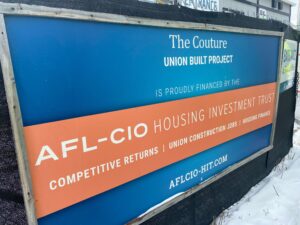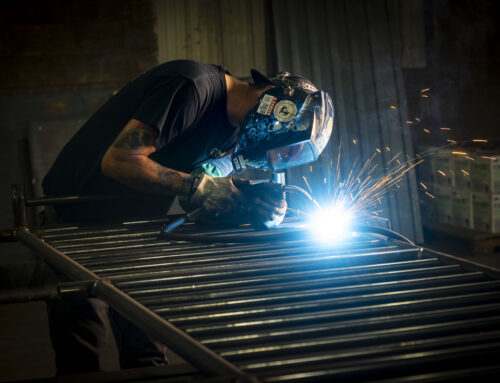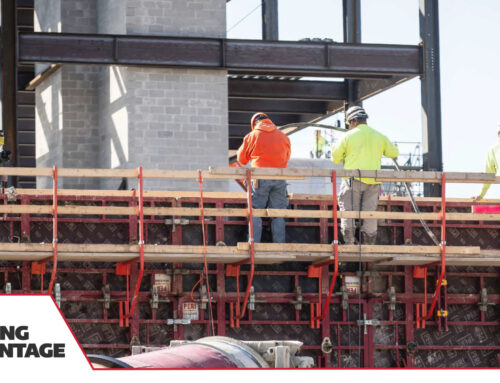How can we strengthen Milwaukee and the greater region by better connecting housing to jobs and jobs to housing? Building Trades Union pension funds are an important tool to help address our region’s affordable housing crisis.
With people throughout southeast Wisconsin increasingly unable to afford housing, the AFL-CIO Housing Investment Trust (HIT) Fund shows how Union pension funds and public investments can be catalysts for development, affordable housing, and workforce growth.
Let’s first take a look at the problem. Housing is one of the greatest challenges that we face as a state. We’ve got to build more affordable and market rate housing to alleviate pressures so that people can afford to live and work in our great state.
In Milwaukee County alone, an estimated 46,000 affordable housing units are needed according to the Wisconsin Housing and Economic Development Authority (WHEDA) Director Elmer Moore. Statewide, that shortage is closer to 150,000 according to our state’s leading housing authority.
Thankfully much is being done and the public and our elected officials’ attention is more and more focused on the issue. Yet far too often because of the financial challenges of financing affordable housing projects, it’s become increasingly difficult to put together what’s called the “capital stack” to finance affordable housing deals.
Expanding the amount of affordable housing presents one of today’s biggest challenges for multifamily developers, elected officials, and our communities. To address the complex process of putting together the “capital stack” necessary to grow the inventory, unconventional alternatives are needed. Some are emerging, others are established tools, but what we’re sure of is that all call for immediate attention from stakeholders.
With many affordable housing developers in a holding pattern in this challenging period for affordable housing financing, Union pension funds’ investments in vehicles such as the AFL-CIO HIT Fund can play a critical role in our region’s long-term planning to meet the affordable housing crisis demand.
Financing a deal isn’t easy given that rents are low and locked to the areas’ Modified Adjusted Gross Income (MAGI). Such deals require more layers of financing than your typical multifamily housing deal and include needing investors willing to put their money in affordable housing. Many investors are more interested in market rate and luxury rate as the returns are greater.
That’s where the Union’s AFL-CIO HIT Fund comes in. The HIT fund is a fixed income mutual fund that comes from Union worker’s pension investments, which with the majority of its portfolio, helps finance affordable housing development. The HIT Fund offers construction-to-permanent financing, forward commitments, and tax credit bridge loans.
For decades, labor Unions have been at the forefront of the creation and financing of affordable housing projects. When housing developers are looking for capital and local officials are seeking trusted housing finance partners, they should know the HIT Fund has the experience needed and commitment to make these complex transactions work on multiple levels.
The Union’s interest is that the demand for housing that people can afford is matched only by the need to train more workers for good-paying jobs and careers in construction. Solving both goes hand in hand because each makes it possible for working families to build a better life.
Many might be surprised to hear of the Unions’ decades-long tradition of financially supporting the nation’s development and supply of affordable housing. But our goal is to make sure it’s no longer a hidden secret and becomes a tool that local developers and our community use more often.
 To date, the HIT fund has invested $10.1 billion of Union members’ pension dollars since 1984 into the construction, rehabilitation and preservation of housing. Today, a majority of the projects being financed are affordable housing.
To date, the HIT fund has invested $10.1 billion of Union members’ pension dollars since 1984 into the construction, rehabilitation and preservation of housing. Today, a majority of the projects being financed are affordable housing.
So now you might be asking, what does labor get out of this? All construction the HIT Fund finances must be built with 100% Union labor. Rightfully so, given the financial commitment. Encouraging and focusing on the development of affordable housing and facilitating employment for Union members in the construction trades and related industries is critically important for our state and economy. The blue-collar construction workers building these apartments have the opportunity to earn family-supporting wages, superior health care benefits, and lifelong training – a career, not a one-time job.
Despite a decade of Union bashing in our great state, Unions continue to get the work done and are making critical investments in our communities and throughout the country. All you have to do is look to Milwaukee, where we have the two largest multifamily project towers ever being built in the state’s history and both are financed by Union investments.
Let’s keep this progress going and extend it to affordable housing where developers can help us tackle the crisis with a new tool – Union financing.






